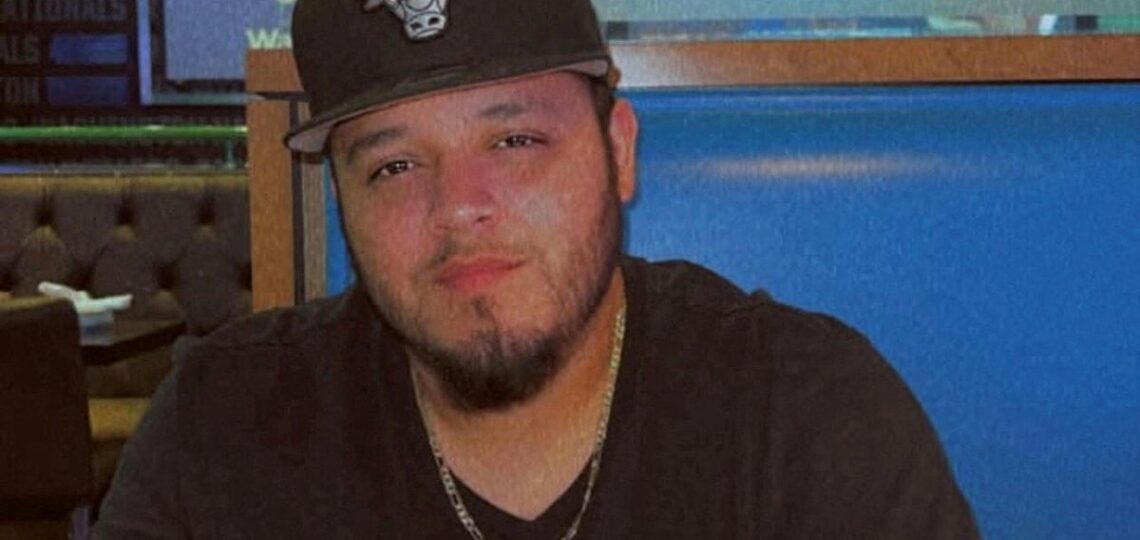
Judge calls DOJ’s motion to dismiss Kilmar Abrego Garcia’s lawsuit “meritless”
A federal judge denied the Justice Department’s motions to dismiss Kilmar Abrego Garcia’s lawsuit over his mistaken deportation to El Salvador, calling one of the government’s motions “meritless.” She did not immediately rule on Abrego Garcia’s motion to be moved to federal custody in Maryland, pending his criminal trial in Tennessee on human trafficking charges.
U.S. District Judge Paula Xinis said to Justice Department attorney Bridget O’Hickey, “You made three arguments, defendants, and none are availing … meritless.”
Xinis, who had ordered the government to facilitate Abrego Garcia’s return to the U.S. after he was sent to El Salvador in March, questioned O’Hickey about whether the U.S. had indicted him in order to facilitate his return. The government did not notify Xinis or Abrego Garcia’s attorneys when he was returned to the U.S. in June and immediately indicted.
Abrego Garcia, a Salvadoran national, was part of a group of more than 250 Venezuelan and Salvadoran men who were deported from the U.S. to El Salvador and held in CECOT, a maximum security prison, in mid-March. Soon afterward, he sued the government over his deportation. His amended suit asks Xinis that he be held in custody in Maryland, rather than in Tennessee, where he’s currently being detained, as well as to block his deportation.
“Obviously you did have power to produce Mr. Abrego because you produced him less than a week later.” Xinis told the government, citing the May 21 date of a sealed indictment against Abrego Garcia in Tennessee filed six days after a motion in Maryland that said the government had no power to return him to the U.S.
Xinis said she found it “highly problematic” that there had been a plan by the government to investigate Abrego Garcia and bring him back for prosecution without informing her court that it was doing so. “We knew it was coming because eventually it was unsealed,” she said. Abrego Garcia’s attorneys told Xinis they found out about his return to the U.S. from news reports.
Abrego Garcia was transported to the U.S. in June and immediately indicted on human trafficking charges in Tennessee that stemmed from a traffic stop in 2019. He is being held in Tennessee pending trial.
Arguing that Abrego Garcia’s lawsuit should be dismissed, O’Hickey said the government had been in ongoing conversations with El Salvador to bring him back to the U.S. at the same time the Justice Department filed its motion to dismiss.
“How can this representation be one I can credit,” Xinis asked.
“At some point, don’t you have an obligation to me to say, ‘Judge, we have the power, we produced him, moot,'” she asked O’Hickey.
She questioned whether the department’s attorneys in Abrego Garcia’s case knew the indictment in Tennessee was coming.
O’Hickey said that at the time, the U.S. was still negotiating with El Salvador, and “it was uncertain what agreement would be released with the foreign sovereign and how all that would play out.”
“The proceedings were moving in tandem and negotiations were ongoing,” O’Hickey said. She told Judge Xinis, “Defendants certainly took steps to facilitate his return.”
“Is the indictment one of those steps? Since we are talking about my court order,” Xinis replied.
Abrego Garcia “wasn’t under investigation until April … a month after this case started,” Xinis said, a contention O’Hickey denied.
“I don’t believe that’s true, your honor,” O’Hickey responded, contradicting law enforcement statements in Abrego Garcia’s criminal case in Tennessee.
Xinis also denied a second motion to dismiss by the Justice Department, which argued that the lawsuit is now moot, since Abrego Garcia is now in the U.S.
She expressed concern that if Abrego Garcia were released from custody, he could be removed again, but listed actions the government could take to assure the court that her order would be followed.
The government could “name a specific country (where Abrego Garcia could be deported) and then give a reasonable amount of time” to challenge that removal, Xinis said. And she offered that the government could “clarify all of this” in a “binding way,” if it stipulated that he would receive due process — that he would not be removed without notice and would have the opportunity to be heard before a court.
Referring to his deportation as an “isolated error,” O’Hickey said, “We’ve acknowledged this was an error and have now acknowledged that error and have no intention of making that error a second time.”
“For three months your clients told the world they weren’t going to do anything to bring him back,” Xinis responded. “Doesn’t that matter?” The president said it in two interviews. [Homeland Security Secretary Kristi] Noem said it. Arguably, [Attorney General Pam] Bondi said it. Am I really supposed to ignore all that?”
“I have been told that there was no error,” Xinis said, and denying the government’s second motion to dismiss, ruled, “I don’t find at the moment that this case is moot.”
Justice Department attorney Jonathan Guynn said that if Abrego Garcia were released from pretrial detention in Tennessee while his criminal case unfolds, that the Department of Homeland Security intends to remove him from the U.S., but the government has not yet decided whether to remove him to a third country or challenge a previous court order that bars his removal to El Salvador.
Xinis ordered additional testimony on Thursday from government officials with “firsthand knowledge” who could testify about the government’s plans for Abrego Garcia’s removal if he is released from detention in Tennessee.
“It’s like trying to nail Jello to a wall trying to find out what is going to happen next week [if he is released from detention],” Xinis said, emphasizing that it is within her jurisdiction to ensure that Abrego Garcia is “not spirited away again” to another country without due process.
Joe Walsh and
contributed to this report.